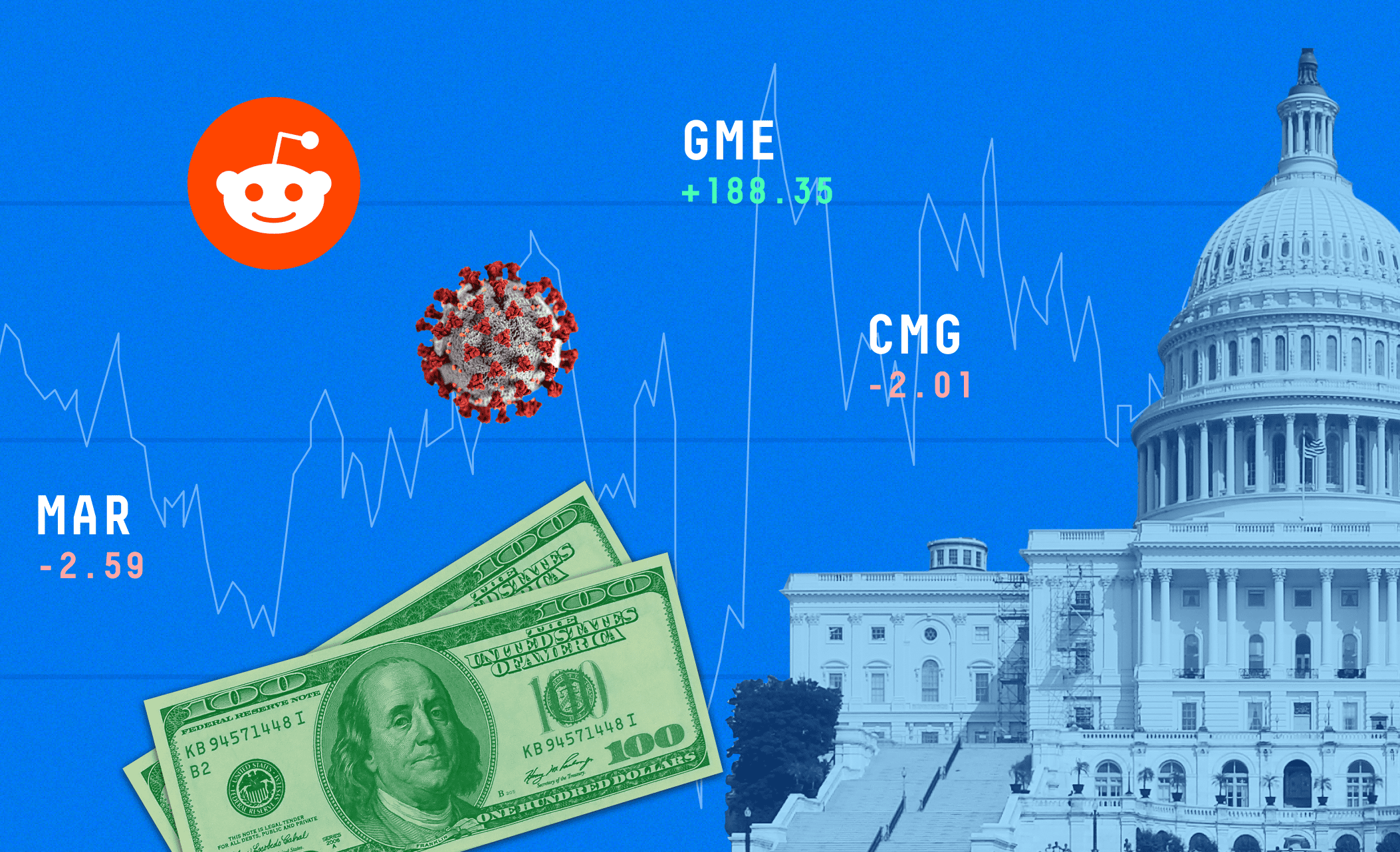Distressed credit has long been a niche pocket of the investment sector. It was a risky endeavor that required time and patience, and it remained on the periphery of mainstream investing as most managers sought more traditional routes and immediate returns. In recent years, however, large institutional investors like mutual funds have taken an interest in distressed private equity and given it more visibility.
The pandemic has generated even more interest over the past 18 months. Otherwise, healthy companies continually deal with travel restrictions, stay-at-home measures, and other impacts outside of their control.
With so many questions about how the pandemic will end and other events impacting the distressed arena (did someone say Reddit?), investors closely watch market movement as they hold onto unprecedented amounts of dry powder worldwide.
Here are three distressed credit trends we’re watching right now.
1. Opportunities in the “Wait and See” Phase
Monitoring distressed credit opportunities has been an exercise in unpredictability since the onset of the pandemic last year. As the market plummeted in the initial days of the crisis, wide expectations were that distressed credit opportunities would be plentiful in the months that followed.
Instead, the market saw a fast and furious rebound in the second half of 2020. Companies in even the hardest-hit industries (hospitality, restaurants, etc.) were kept financially afloat by stimulus measures taken by the federal government and an abundance of cheap financing driven by historically low federal interest rates. As a result, the economy remained stable despite swings in COVID case numbers and the variety of restriction levels implemented in response.
While the stock market has continued to perform, experts predict that the staving off of distressed scenarios so far is temporary. As stimulus measures end, long-term pandemic effects begin to hit balance sheets, and the market takes an inevitable downswing, we’ll see more distressed companies in search of capital.
TMF Group recently summarized the situation as follows:
“Analysis reveals that for distressed debt M&A opportunities, the challenges of COVID-19 mean that private debt firms appear to be waiting for the dust to settle while assessing the true impact of the global pandemic,” the release says. “There is also a sense that deals will emerge over the next couple of years but will require managers to be laser-focused as they seek out the best investments.”
And so it seems that while it may be quite a while before we know how distressing credit will shake out post-pandemic, it’s something private equity investors and anyone interested in the private debt market will be keeping an eye on.
2. Retail Traders Make an Impact
As if the past year wasn’t delivering enough unpredictability, we’ve now got Reddit at the top of our list of things that affect the distressed credit market.
Unbelievably, efforts by users of Reddit’s r/WallStreetBets investment forum upended the attempted short-sale of GameStop stocks at the start of 2021, pushing shares up 2,265% in two weeks (from $20.42 to $483).
Hedge funds at White Square Capital and Melvin Capital both saw huge double-digit losses after betting against GameStop. Robinhood “restricted transactions for certain securities to position closing only.” The action spawned outrage from retail investors on the platform and called public attention to the ethics and lack of oversight around Robinhood’s — and similar platforms’ — ability to impact the market.
GameStop wasn’t the only short stock to gain Reddit-driven traction. AMC, Bed Bath and Beyond also enjoyed gains thanks to Reddit users, although they weren’t as newsworthy as the GameStop saga. In addition, uranium mining companies and SmileDirectClub are two of the Reddit board’s newest favorites.
Since then, “meme-stocks” has become a common phrase, and there has been significant industry chatter about managing similar situations in the future. As a result, the SEC is looking closely at how it might need to regulate “gamified” trading going forward. Investors are taking a cautious approach to what may have previously been seen as slam-dunk shorting strategies, acknowledging that while individual retail traders may not have much market knowledge or traction, they’re collectively able to make real impacts.
3. Real Potential in Rescue Investing
We know that government stimulus measures and abundant cheap financing options have kept many companies out of the distressed market. In contrast, investors keep their eyes on the market for opportunities that may emerge in the future.
For the time being, though, investors need something to do with their capital. As a result, many are finding success in an alternative option — rescue lending. Rescue lending is a hybrid of distressed investing and direct lending, funding companies on the brink of bankruptcy who have run out of other options and need immediate cash.
This might sound like a bad strategy, but the pandemic has created unique situations where otherwise well-run companies have dealt with situations that made it impossible for them to earn revenue, like hotels in destinations with strict travel restrictions.
And while most companies are taking advantage of the cheap debt available to them through traditional bank routes, some are inevitably turned away for various reasons. That’s where rescue investors come in.
Oaktree Capital Management founder Howard Marks refers to it as finding “hidden gems,” noting that continued worry about the Delta variant and other pandemic-related issues has created a situation where companies in impacted industries may be undervalued.
Investors Need to Be First to Opportunities
In a market where there’s more cash to spend than places to spend it, investors will need to be on their A-game to arrive first to opportunities with the most profit potential.
Like other market crises such as the crash of 1929 and GFC in 2008, the pandemic will present investors with a number of otherwise well-run companies who require distressed funding at little or no fault of their own. The difference is that in 2021, stock activity, market trends, and company information is more readily available than ever online. As a result, firms without the ability to continuously search and stay ahead of market news and events will miss out on profitable opportunities.
Improve your investment research with Smart Search technology. Smart search technology, powered by NLP and Machine Learning, can expedite research and quickly point you to the most meaningful data points that drive actionable insights. Download our white paper, Better Investment Research with Smart Search to learn more.



